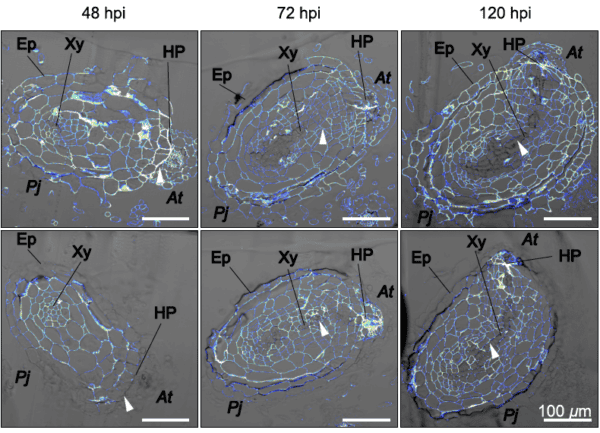Plant Physiology
https://doi.org/10.1093/plphys/kiad343
Martina Leso, Anna Kokla, Ming Feng & Charles W Melnyk
The formation of the haustorium is common to all parasitic plants and requires a dedicated process of growth, attachment and tissue invasion. Such a process presumably involves cell wall modifications to allow cell division, cell expansion and the digestion of host tissues. Here, we used Phtheirospermum japonicum infecting Arabidopsis thaliana to investigate the role of pectins during parasitic plant infection. Using transcriptomic studies, we found that multiple pectin methylesterases (PMEs) and their inhibitors (PMEIs) were upregulated in the parasite during various times during infection. We used antibodies to monitor changes in pectin methylestification status and found that de-methylesterified pectins were present in outer haustorial cells where as highly methylesterified pectins were present in inner vascular tissues including the xylem bridge. We then inhibited PME activity using chemicals or by over expressing a PMEI gene which caused a delay in haustoria development. Blocking xylem bridge formation also inhibited the activation of several PME and PMEI genes suggesting their expression was specific to haustoria maturation. Together, our results suggest a dynamic regulation of pectin modifications contributes to haustoria formation during plant parasitism.
